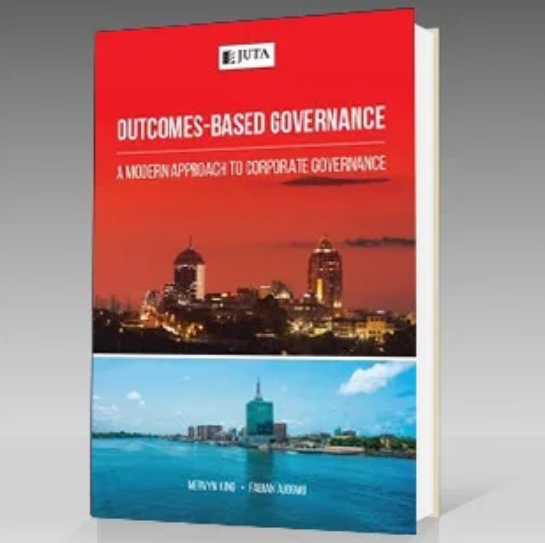Organisations in the twenty-first century have witnessed significant changes and challenges relating to sustainable development. These challenges have been triggered by a number of factors, such as the reality that organisations and individuals are using up natural resources at a faster rate than nature is able to replenish same, the world has witnessed a number of financial crises that crumbled not only organisations but also whole economies. These crises revealed weaknesses within organisational leadership and structure and have created a world characterised by vocal calls for real transparency. These requests have been amplified by the rise of social media, an awakening on the part of stakeholders, (investors in particular) to the need to protect their investments and the society at large is beginning to demand certain non-traditional obligations from organisations as corporate citizens.
Technological disruptions and developments have also been relentless in changing the traditional roles and functions of organisations and business models and industries as we knew them. It is in light of these developments that the essence of corporate governance as a tool for engendering sustainable development and increased stakeholder confidence has become more relevant than ever as most corporate failures have been attributed to the failure of corporate governance. It is against this backdrop that corporate governance principles, codes and regulations have developed over the past few years to ensure that the challenging realities of a changing world are adequately catered for.
The King IV Code of South Africa has been revolutionary in this regard as it provides a framework for considering the governance of corporate entities from an outcomes-centric approach. The Nigerian National Code of Corporate Governance 2018 takes a cue from King IV, albeit from a principles-driven angle. Although the concept of governance outcomes is not revolutionary, it is hardly mainstream; it is innovative, and in most jurisdictions, untested. Outcomes-based governance entails considering the positive effects and benefits that an organisation can reap if the underlying principles of good governance are properly applied and fully achieved. It promotes the idea that there is a need to consider the potential benefits effectively implementing governance inputs as opposed to isolated actions, details, or procedures.
The principles of an outcomes-focused approach have become crucial in equipping the board in whom the primary duty of corporate governance lies, with the tools required to achieve sustainable development and stakeholder confidence. Various trends and components of contemporary corporate governance have also emerged in recent years to assist the corporation in developing management quality and responsiveness towards the interest of all its financial stakeholders and society at large. Some of these emerging trends are inclusive capitalism, long-term sustainability, rights relations, integrated reporting, and technology governance. All the trends are interrelated and result in one goal; the long-term existence and profitability of corporations. As new corporate governance trends have emerged, so has the role of the board of directors and other persons key to the development of an organisation such as the company secretary, auditor, institutional investors and even the government and regulators evolved.
Importantly, in recent years, a new role of a Corporate Stakeholder Relationship Officer has been developed to handle the task of communicating with stakeholders and informing management of their legitimate and reasonable needs, interests, and expectations (NIEs). The major aim of this book is to demystify outcomes-based governance and emerging corporate governance trends and aid their adaptability in emerging economies. The idea is that good corporate governance is not only for large organisations but also useful for small and medium-sized enterprises (SMEs) which make up most businesses in emerging economies and the world generally, hence organisations and economies however small should ensure to adopt best practices from inception. The authors of this book bring in their substantial experience and knowledge from two countries (Nigeria and South Africa) and it is our hope that enterprises and individuals who are keen on expanding their corporate governance practices find this book helpful.
Professor Mervyn King, SC
Johannesburg
20 February 2020
Professor Fabian Ajogwu, SAN
20 February 2020


